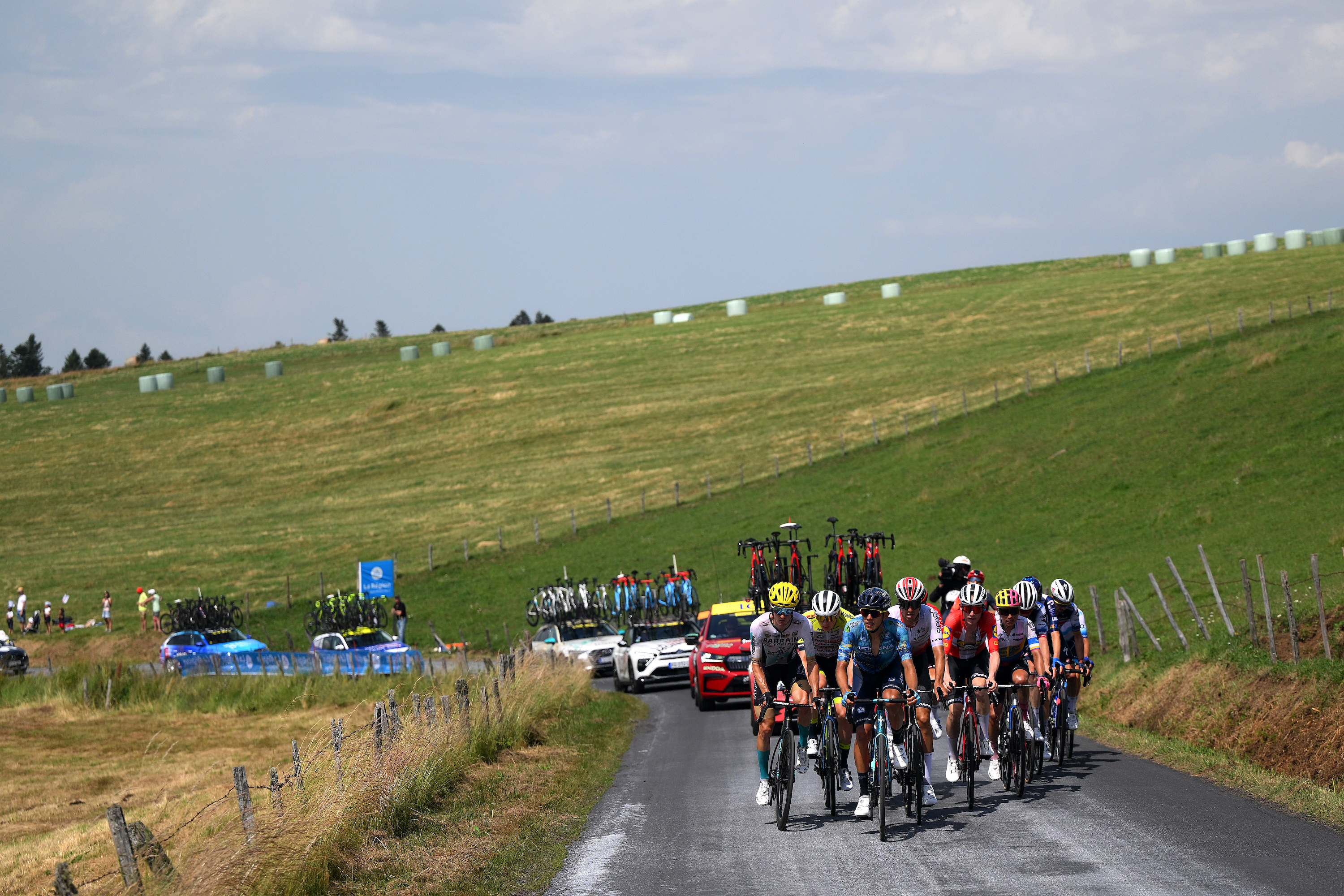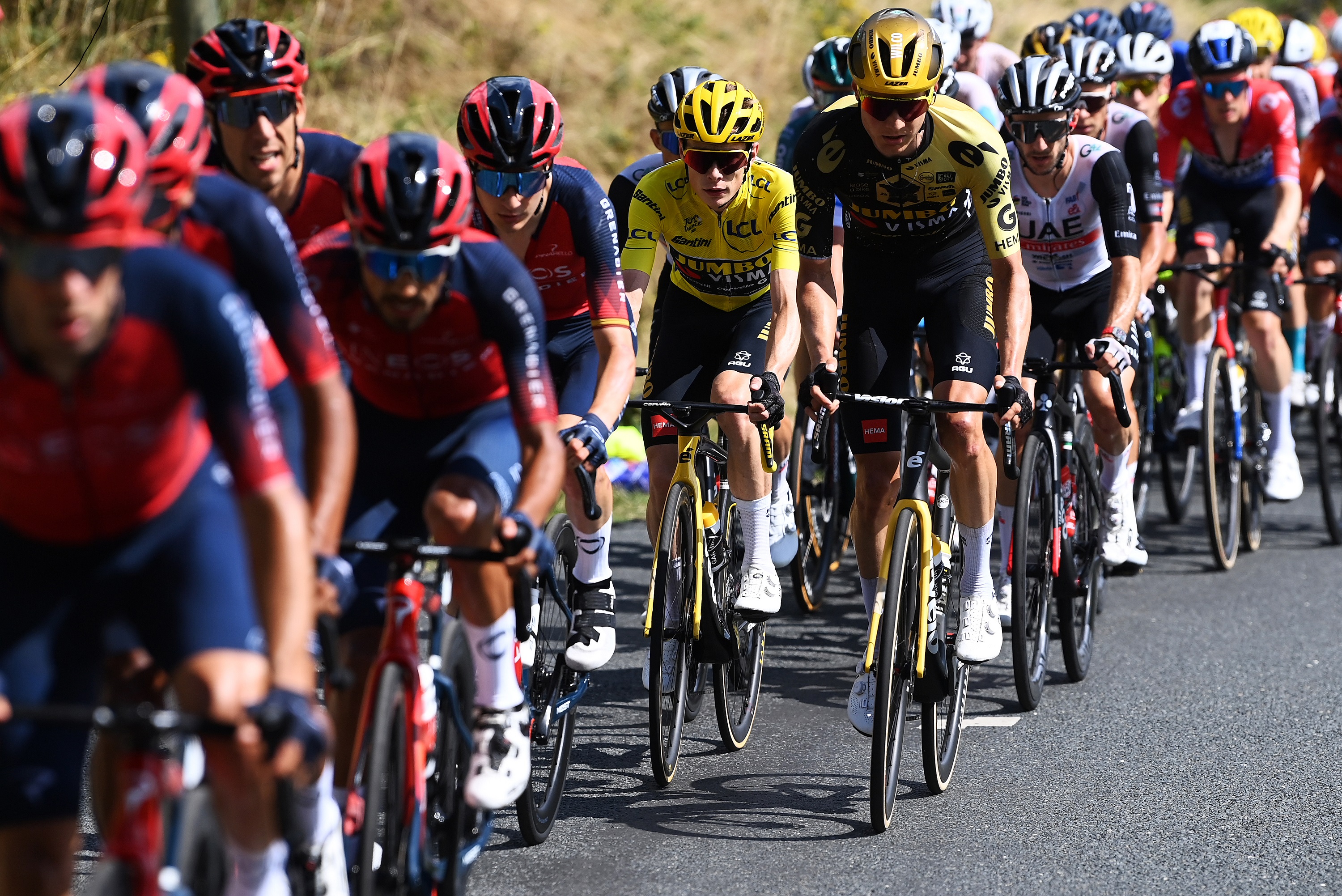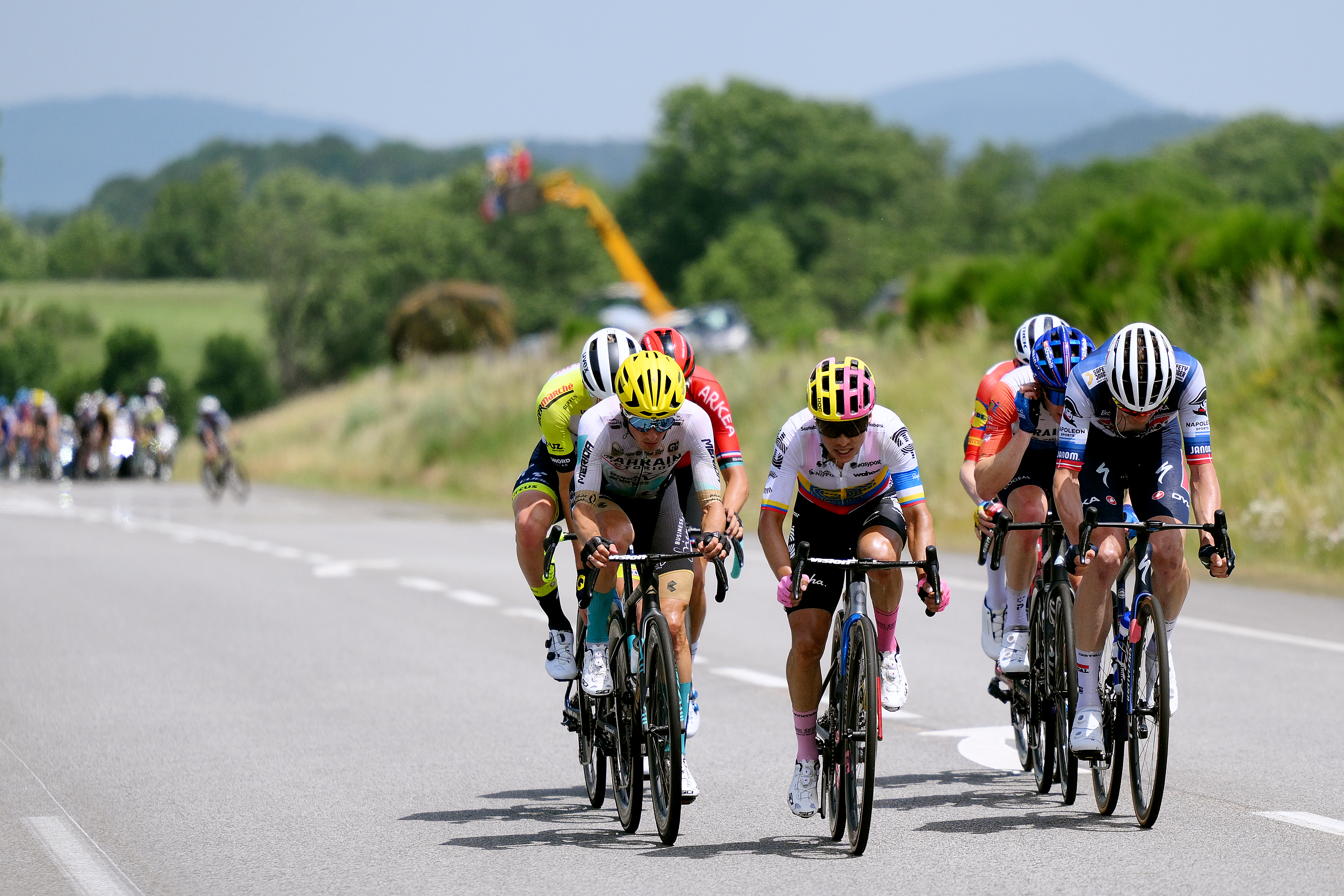'They race like juniors': How men's pro cycling is getting wilder and races refuse to slow down
Racing from the gun during a three week Grand Tour is a big ask for even the best and the strongest. Is this the new cycling?


Grand Tour cycling, to my mind, is often a lot like Test cricket. The sport ebbs and flows, there are ups and downs, the tension builds until something gives way, until something happens. There are often long periods of time where nothing seems to happen at all, but this makes the pay off when the action does kick in all the sweeter.
However, something weird has been happening in English cricket in the last two years. Thanks to the influence of the new captain and coach combination Ben Stokes and Brendon McCullum, there essentially are no longer quiet periods in Test matches; the action does not stop. There's less ebb and flow, and more constant flow.
The same is true of modern Grand Tour cycling. Of course, there are still boring stages - stage 17 of this year's Giro d'Italia or stage four of this year's Tour de France are testament to that - but more often than not these days, stages are explosive, raced from the gun. There have been stages at the last two Tours de France where we have seen the likes of Wout van Aert force their way into the break from the start, attempting to blow apart the race.
Such is the ferocity and speed of some of the days, that the general classification teams get involved, hoping to either capitalise on the chaos, or in an attempt to keep everything together. Stages that might have been dull transition days in the past are now raced like Classics. Partly, this 'always on' mentality is down to the riders at the top of the sport right now - athletes like Tadej Pogačar or Remco Evenepoel, who have the racing urge like almost no-one else. But the courses that organisers are planning are a factor, too.

Expect the unexpected
"The dynamic racing-wise has already changed in the last few years," Lidl-Trek directeur sportif Steven De Jongh told Cycling Weekly at the Tour, ahead of stage 13. "If you look at yesterday's [stage 12] race it was crazy. In the car we were saying they race like juniors. There's so much attacking. It's really good to watch and I enjoy it a lot, but I'm also curious as how they will race next week with all the fatigue in the legs."
"A lot of things have surprised us about the way the race has gone," Tom Southam of EF Education-EasyPost said. "We laugh on the bus saying 'expect the unexpected', but actually it's true. I feel like the flat stages have become slower than ever because the other stages are so hard. The medium stages, like when [Ion] Izagirre won [stage 12], have become so difficult that it's actually proper climbers in the front group. These are intermediate stages but proper climbers are getting in there.
"There's a lot of things out there that make you scratch your head. I think as more teams are fighting for less - two teams are sitting on the top of GC, so the battle for the third place on GC is fierce, and so is the battle for the top 10. There's the teams classification so teams have been riding for that. All of the smaller classifications have become more important because there's less to take from the very top."
The latest race content, interviews, features, reviews and expert buying guides, direct to your inbox!
There were two stages of the Tour in particular that stand out, first, stage 10 from Vulcania to Issoire, won by Pello Bilbao, and then stage 12 from Roanne to Belleville-en-Beaujolais, won by Izagirre. On the former, a scorchingly hot day in the Auvergne, it was climbers who were at the fore, not puncheurs. The same happened two days later, as Classics specialists like Fred Wright, Mathieu van der Poel and Mads Pedersen were outdone on the climbs, such was the speed.
The other theme of both these days was GC teams being in on the action, with stage 10 seeing both Jumbo-Visma and UAE Team Emirates getting involved in the moves; Pogačar and Jonas Vingegaard were ready and waiting to follow the race from far out.

Method in the madness
"There must be a method to their madness," Mat Hayman, DS at Jayco AlUla, told Cycling Weekly. "I don't think Jumbo does anything without thinking about it a lot. Whether they get caught up in the method and lose sight of the big picture, that's not for me to judge. I'm finding it a little bit harder to predict than a few years ago when you knew pretty much how the stage was going to play out.
"You've got to be prepared for potential ambushes. I take it into consideration. You see Wout just on the back of the red car from the start and they force the breakaway. The sport is always evolving."
"The breakaway days are always the most exciting stages, because they're not super hard climbs, there's always a big fight for the break," Matt Winston, DS at dsm-firmenich, said. "We were jumping for the moves with Romain [Bardet], because we see an opportunity to move up on. When he jumps, everyone is jumping and then it's just on all day. You come to a point where there's only 35 guys in the peloton early on in the day. It puts the guys on the limit."
All of this means that it is harder to predict what is going to happen, to plan in the morning.
"You can only control what you can control," Winston said. "You can have a base plan, but you've got to have a few different scenarios ready."
"We don't give the guys a kilometre," Hayman added. "We give them markers for who can go where and when, but we don't put a kilometre on it because you don't know. Anything can happen, it can go from kilometre 0 but there could also be a 50km full gas fight."
"There's 150 riders who want to be in the break at this Tour," Southam said. "And there's 140 people on paper who should be 'allowed' to go in the break. So that means it's a huge fight. Our riders are lining up 15 minutes before the start, literally like a junior race."

There isn't a team that's satisfied
The lack of traditional boring stages - and the fact that GC teams get involved - conspire to make it harder for smaller outfits to have an impact. Uno-X had a good debut Tour, but it wasn't like races of old where they could guarantee a rider in the break everyday, a scenario which teams like B&B Hotels used to live off.
"To win the Tour, to win stages, is so hard now, that basically all the sub categories that aren't usually raced until the third week, are happening so early," Southam explained. "That's why we're having this non-stop racing where there isn't a team that's satisfied, and then it keeps going and going."
"If the riders have the legs it's good, because they can follow a lot of moves and if they're in it doesn't matter," De Jongh said. "It's harder to predict now how long the race will go on. It seems like the GC teams are not quickly happy with the situation. You see some days and you think it would be easy to control if a good break is gone, but they still want to be in there themselves."
Racing the majority of a Grand Tour with such heady ferocity does mean that flat days are tackled seemingly with less energy than ever. There is still the light to the shade of three-week racing, but it appears the chasm is widening.
Take a look at this year's Vuelta a España route, and there could be six sprint stages, or just four, depending on how the race goes. With teams looking to squeeze something out of any opportunity, it's likely the in-between days will be dealt with at full gas.
"It's exciting, the viewers must be enjoying it," Hayman said. "They shouldn't complain when there's a sprint stage and no one wants to go up the road. Believe me, they're all a bit tired."

Adam is Cycling Weekly’s news editor – his greatest love is road racing but as long as he is cycling, he's happy. Before joining CW in 2021 he spent two years writing for Procycling. He's usually out and about on the roads of Bristol and its surrounds.
Before cycling took over his professional life, he covered ecclesiastical matters at the world’s largest Anglican newspaper and politics at Business Insider. Don't ask how that is related to riding bikes.